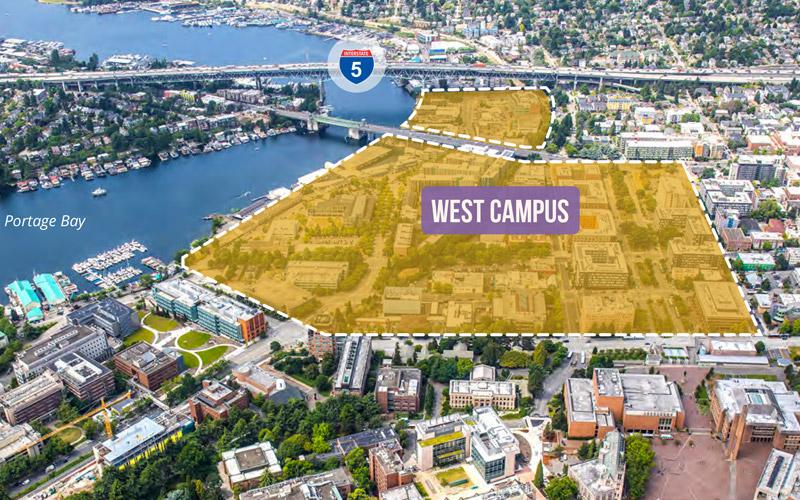The University of Washington is creating a dynamic and interdisciplinary urban community on the west side of the Seattle campus. Portage Bay Crossing will merge education and student life with cutting-edge research, pioneering public/nonprofit institutions and private companies.
The vision for Portage Bay Crossing is to create a place where student and faculty experts across multiple fields — including public health, engineering, life sciences, social work, public policy, the humanities, physical sciences and environmental studies — can partner with business, government, nonprofit organizations and the Seattle community to solve critical challenges.
The development of Portage Bay Crossing will serve as a bridge between the traditional main UW campus and the ever-growing city surrounding it. Portage Bay Crossing will be a lively urban environment with a robust mixture of arts and culture, retail and gathering spaces that allow students, researchers and partners to interact. It also aims to be exemplary in design quality in the spirit of the Pacific Northwest and best practices of this type of district development.
W27 project update
February 28, 2025
Due to significant shifts in the broader economy, changes in the university funding landscape and evolving market conditions in Seattle since the project’s selection in 2021, the University of Washington and Wexford Science & Technology have jointly decided not to move forward with the development of the Brightwork (W27) building at Portage Bay Crossing at this time.
We deeply appreciate the dedication, time and effort invested by all stakeholders in shaping a compelling vision for this project. While this specific development will not proceed as planned, the UW remains committed to fostering innovation and will continue to monitor market conditions and evaluate the long-term potential of Portage Bay Crossing.
Wexford remains steadfast in its vision of combining the UW’s cutting-edge research with commercial tenants to create a dynamic and collaborative ecosystem adjacent to the university campus and look forward to future opportunities to advance this mission in alignment with the UW.
